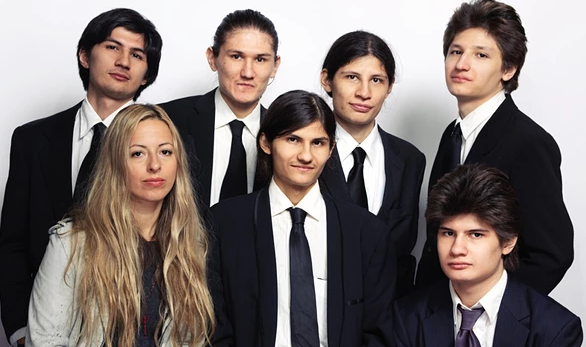“If I didn’t have movies, life would be pretty boring. And there wouldn’t be any point to go on, you see?” So goes the sentiment of the Angulo brothers, a group of six boys confined to the walls of their Lower East Side project housing for the majority of their adolescence. Homeschooled by their Midwestern mother, Mukunda, Narayana, Govinda, Bhagavan, Krisna (Glenn), Jagadesh (Eddie) and Visnu (the only girl in the family), discover the world around them by religiously watching movies–particularly Quentin Tarantino staples like Reservoir Dogs and Pulp Fiction (ideal for acting out with the number of siblings they have to fill each role).

Their South American born father, a seemingly Svengali-like presence, met the boys’ mother while she was traveling in his country. The two moved to New York with plans to make money and then move on to Scandinavia, where the government actually takes care of its people. But their father’s contempt for people and the system of our country led him to rebel by not working. As one of his sons notes, “My father, he doesn’t love the idea of working. He calls it being a slave to society.”

This is, in part, what compels their father to keep his family inside, starting, for all intents and purposes, a tribe of his own. Not trusting others, their father is determined to protect his sons from the evils of New York. But the plan always had an expiration date, whether he wanted to admit it or not. The older the sextet gets, the more rebellious they become. Mukunda even goes so far as to sneak out of the house with a Michael Myers mask on and roam the streets of the Lower East Side, which ultimately gets him arrested and taken to the psych ward of the nearest hospital.
And yet, for the first time, Mukunda feels saner than ever, having experienced the simple pleasures of fresh air and other people. Soon, his brothers are joining him, roaming the neighborhood dressed like the cast of Reservoir Dogs. Their aesthetic is what drew the interest of documentarian Crystal Moselle, then a freshly graduated student from SVA. Their shared love of film bonded them, and earned the trust she needed to make a film about their lives. Although, at first, she thought it was going to be an endearing movie about a group of brothers who like to re-create iconic scenes, the revelation that they had been kept in their apartment for most of their lives quickly changed the tone and direction of the narrative.

It was no longer merely a story about a passion for cinema, but one of film as a means for coping. Like Cecilia in The Purple Rose of Cairo, the movies are a means for escape. Nothing else matters when you’re watching, because you’re in that world–not your own terrible one. The brothers’ eventual ability to break out from their patriarch’s rule (they no longer speak to their father) is, in many ways, a testament to the power of a film. It can inspire and lend hope, just like The Wolfpack itself.






















